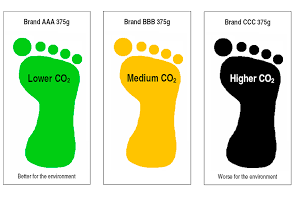MJ Biz report
Hemp and marijuana companies are considering whether to jump on a trend experts say will intensify as governments double down on climate goals.
President Biden pledged last week to cut U.S. greenhouse gas pollution in half by 2030.
“These steps will set America on a path of a net-zero emissions economy by no later than 2050,” said Biden, who has ambitious goals to address climate change through efforts such as decarbonizing the U.S. power sector by 2035 and developing a carbon bank that would pay farmers to adopt regenerative practices.
Businesses respond
Pressure for corporate transparency on carbon is mounting from consumers, said Ethan Soloviev, chief innovation officer for research firm HowGood.
And with more companies taking part, that pressure to comply will only increase.
He points to New York University’s 2020 Sustainable Market Share Index, which found that sustainability-marketed products are responsible for more than half of the growth in consumer packaged goods from 2015 to 2019, and that the growth continued despite the COVID-19 pandemic.

Image courtesy Oatly
“Those products that are more sustainable are selling way better than their category, across many major consumer goods,” Soloviev told Hemp Industry Daily.
Brands of all sizes, from plant-based milk brand Oatly to Unilever with its 70,000 products, have responded by adopting consumer-facing labels showing the amount of carbon released during a product’s lifecycle.
“It’s huge this year and I expect to see a lot more of this in the years to come,” said Soloviev, whose company has built a sustainability database and impact platform to help brands, retailers and investors improve their environmental and social impact, including restaurant chain Chipotle.
Some say cannabis companies will be next.
“We are an industry that has needed to have the ability to continually adapt, and effectively adapt, really since it started,” said Ryan Cross, operations manager at River Organics, which grows hemp and makes CBD products in Gloucester, Virginia. “So if consumers are demanding environmentally cautious production methods and transparent labeling, they really should get it.”
He said labels would be especially welcome in an industry as young as cannabis.
“All of our products for a long time could only be accessed illegally. So anytime we can provide our consumers with knowledge and transparency, I think it’s a benefit in the long term.”
Read full article at
https://mjbizdaily.com/cannabis-companies-eye-carbon-footprint-labels-on-their-products/

















